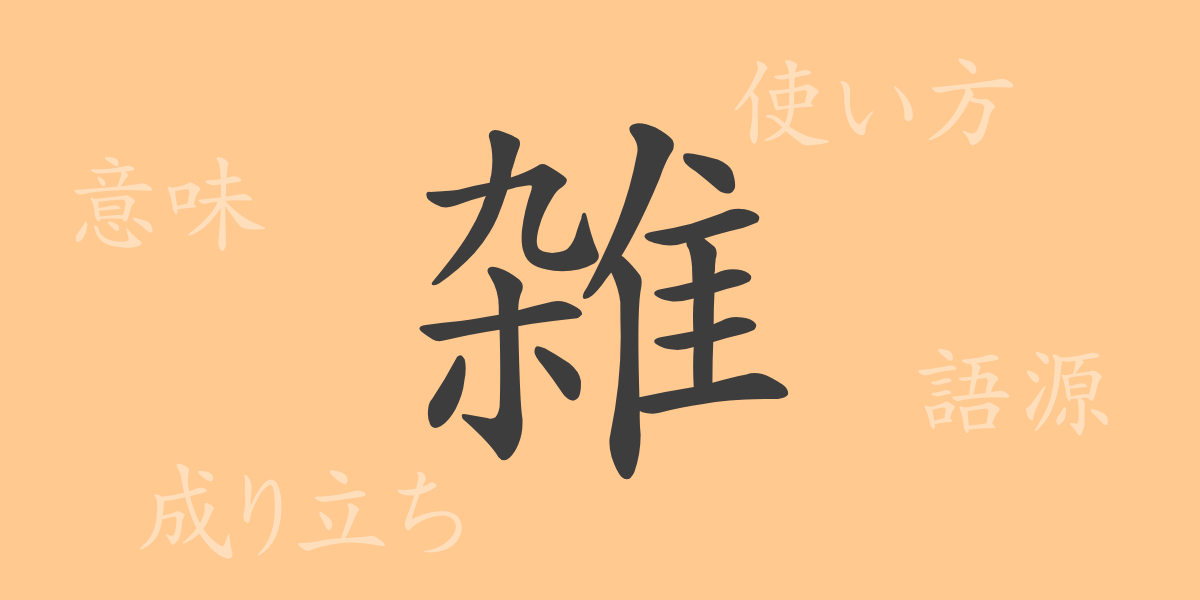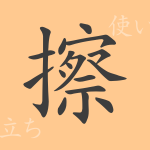The Japanese language contains numerous beautiful characters that express emotions, nature, and social phenomena. Among these, the kanji “雑(ざつ)” represents a concept deeply rooted in our daily lives. This article delves into the origins and modern usage of the kanji “雑(ざつ),” exploring its charm and meaning in depth.
Origin of 雑(ざつ)
To trace the origin of the kanji “雑(ざつ),” we need to go back to ancient China. Originally written as “雜,” this character evolved from a pictograph depicting different types of grains mixed together. Over time, it came to signify a variety of mixed things and has been used in the same sense since it was introduced to Japan.
Meaning and Usage of 雑(ざつ)
The kanji “雑(ざつ)” denotes a mixture of various things and related phenomena. In Japanese, it is used in words like “雑多(ざった)” (varied) and “雑踏(ざっとう)” (crowd) to describe situations where different elements are mixed together. Additionally, it is used to describe a lack of attention to detail or a rough approach, as in “大雑把(おおざっぱ)” (rough or approximate).
Readings, Stroke Count, and Radicals of 雑(ざつ)
Understanding the readings and structure of the kanji “雑(ざつ)” is key to grasping its usage.
- Readings: The on’yomi (音読み) readings are “ザツ(ざつ)” and “ゾウ(ぞう),” while the kun’yomi (訓読み) readings include “まじ.える(まじ.える)” and “まじ.る(まじ.る).”
- Stroke count: 14 strokes
- Radical: 隹(ふるとり)
Idioms, Phrases, and Proverbs Using 雑(ざつ) and Their Meanings
There are many idioms, phrases, and proverbs in Japanese that include the kanji “雑(ざつ).” These expressions convey various nuances depending on the context and highlight the richness of the language.
- 雑学(ざつがく) – A wide and shallow range of knowledge.
- 雑談(ざつだん) – Casual conversation without a specific theme.
- 雑用(ざつよう) – Everyday tasks that do not require special expertise.
- 雑感(ざっかん) – Various impressions or thoughts at different times.
Conclusion on 雑(ざつ)
The kanji “雑(ざつ)” has represented concepts closely tied to our lives from its origin to the present day. Even in today’s world, filled with diverse information, this kanji symbolizes diversity and complexity, enriching the language. By understanding the deep meanings behind each kanji that makes up the Japanese language, we can develop a richer expressive ability.

























